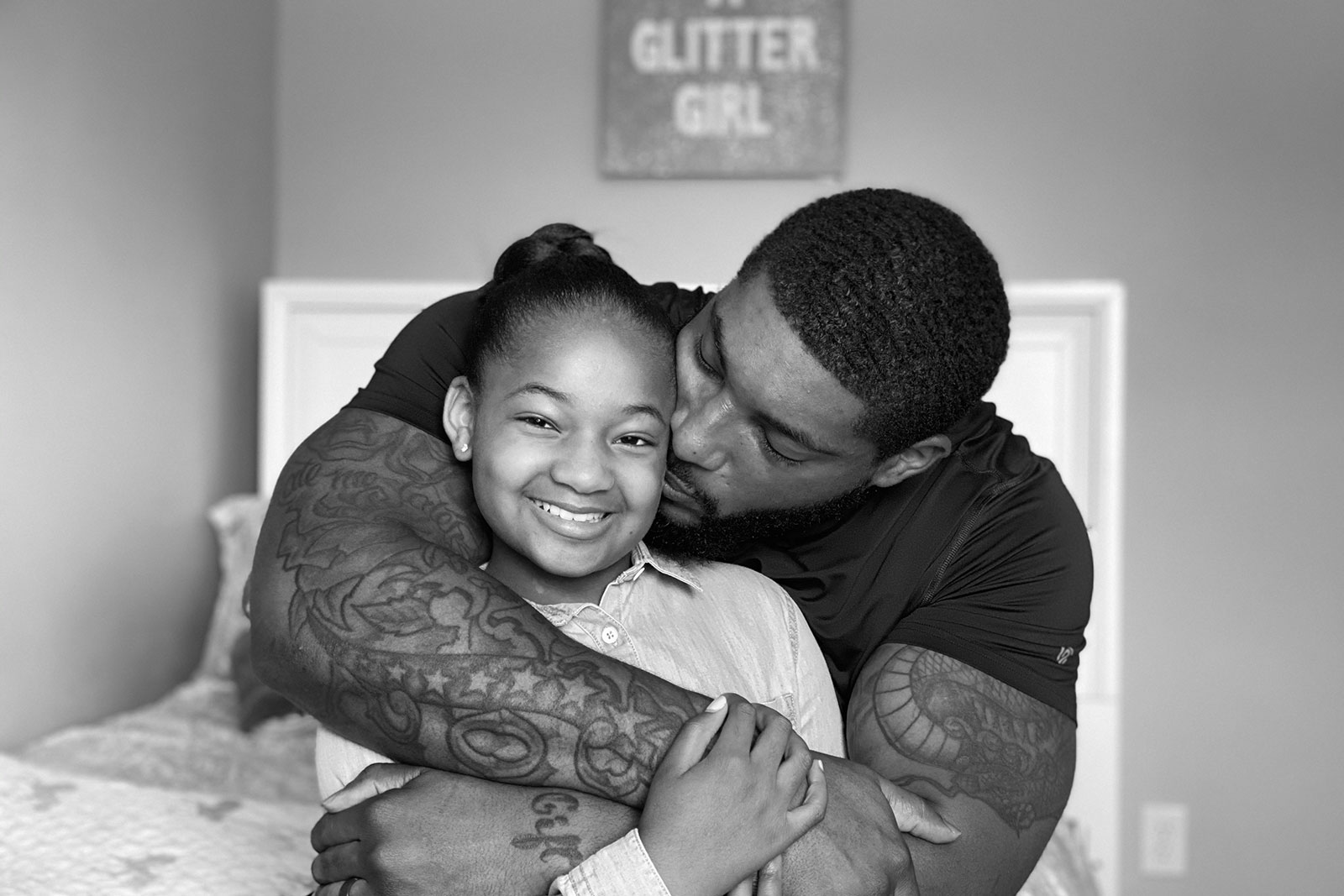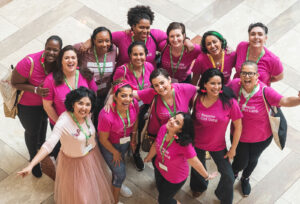A childhood cancer diagnosis is the furthest thing most parents think about concerning their children’s health and safety. But each year, thousands of children are diagnosed with the debilitating disease, leaving many parents confused and scrambling.
Former NFL defensive end Devon Still was one of those parents. In 2014, Still’s daughter Leah was diagnosed with stage IV neuroblastoma, a solid-tumor cancer that can form in the abdomen, spine, chest or adrenal glands. The rare cancer most commonly develops in children under the age of five. Around 800 children are diagnosed with neuroblastoma each year, accounting for around 7 to 10 percent of all childhood cancer cases in the U.S. Nearly 70 percent of children diagnosed with neuroblastoma are diagnosed at an advanced or metastatic stage and only 50 percent achieve remission.
Devon took a career hiatus to focus on Leah. After surgery and treatment, Leah was declared in remission in 2015 and has been cancer-free since then. Yet, despite that good news, Still was determined to continue his advocacy for childhood cancer awareness.
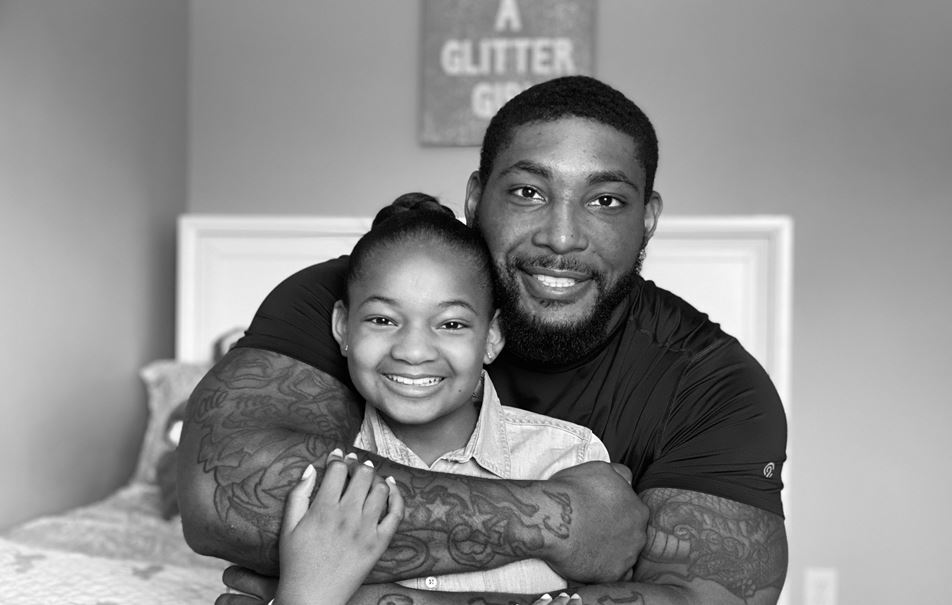
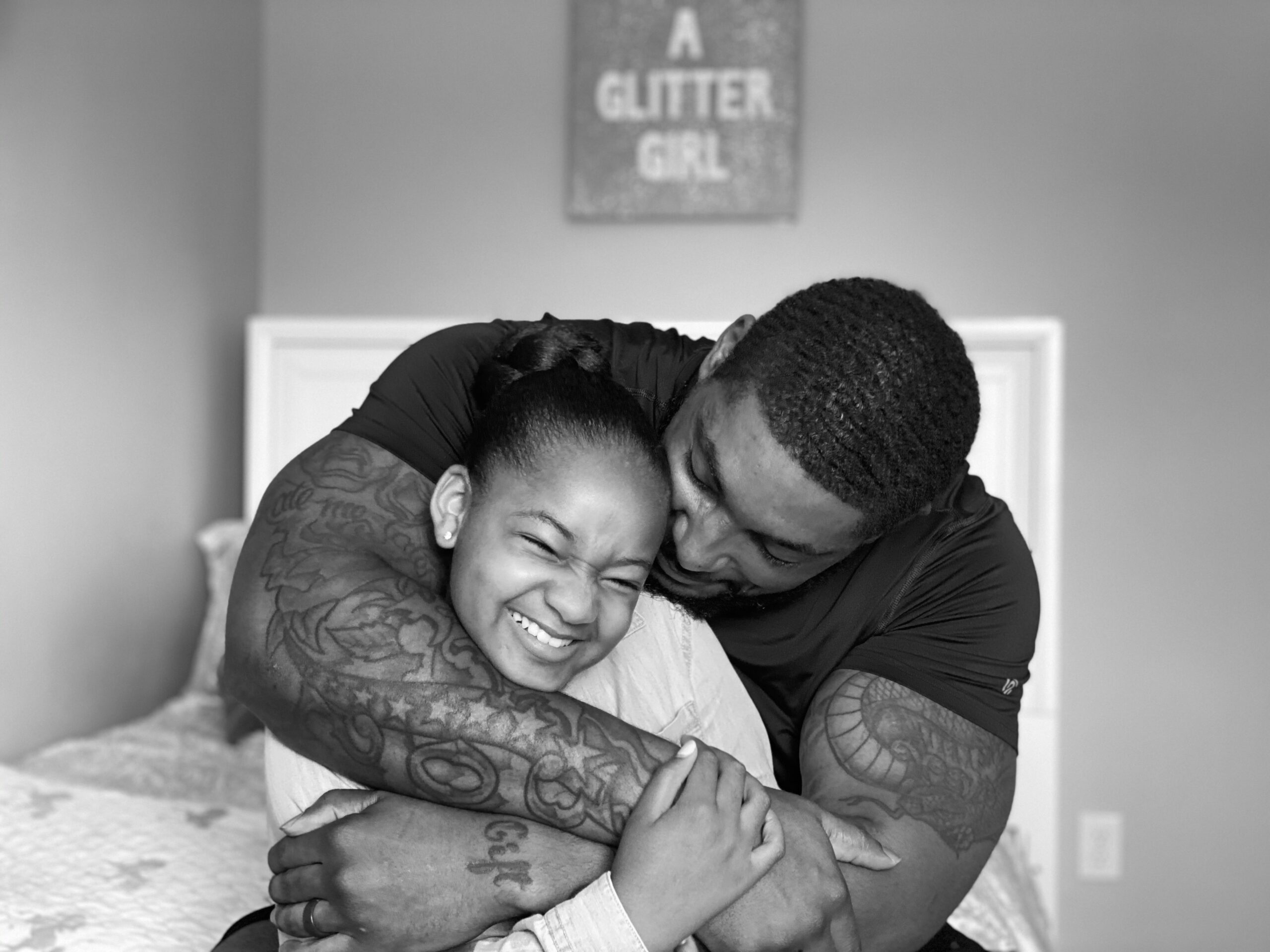
“I wanted to use my platform to inform other families out there that are battling cancer that there are resources to help you do this battle,” Still says.
Enter Braving NeuroBLASToma. The new campaign, developed by United Therapeutics Oncology, aims to provide warriors and their families with the tools to navigate a neuroblastoma diagnosis. United Therapeutics Oncology is an organization focused on “addressing unmet needs in the pediatric neuroblastoma population.”
“I used to say in my interviews when Leah first got diagnosed that I wish there was a playbook for this because I didn’t feel like there was a playbook on how to overcome neuroblastoma,” Still recalls. “There wasn’t a book where it let me know, ‘OK, this is what you should expect when you get diagnosed. This is what you should expect during treatment. And this is what happens after treatment.’”
Braving NeuroBLASToma launched in September as part of Childhood Cancer Awareness Month.
Among its many materials, Braving NeuroBLASToma includes a website with a library of resources including questions to ask one’s doctor, information on navigating clinical trials, a breakdown on understanding treatment and advice for caregivers.
Braving NeuroBLASToma also includes four illustrated books highlighting different stages in the high-risk neuroblastoma journey. The first book, “The Big Adventures of Little Skivolo,” focuses on initial diagnosis and treatment. “The Next Big Adventure of Little Skivolo,” the second book in the series, focuses on antibody therapy during treatment. The third book, “Little Skivolo’s Book of Fun,” is an activity book crafted to entertain families during long hospital stays.
The latest book, “Zara Takes Off,” focuses on a family’s life navigating the complicated waters of post-cancer treatment.
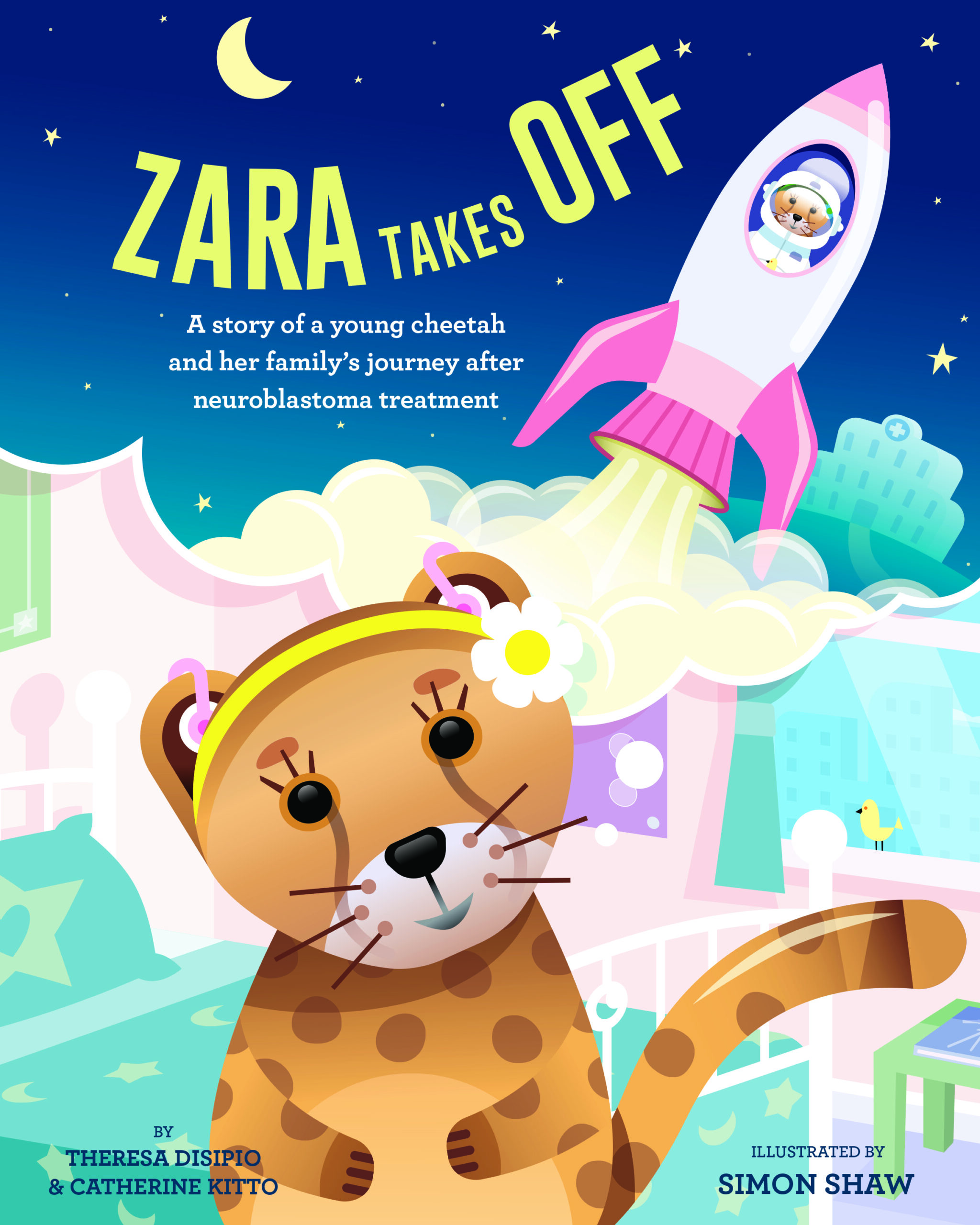
“What Zara does is it tries to encourage and inform kids what they will be [facing] throughout their journey and tell them the steps that they can take to really overcome it,” Still says about the book.
Leah Still wrote the foreword to the book and shared details of her own cancer journey.
“When Leah read the book, it really resonated with us because we saw our story and that’s how I knew how powerful this book series was,” Still says. “When you go through that battle and when you read a book [that is] not about you but you can still see yourself in that book, that’s how we knew it [would] have a great impact for families that are battling cancer.”
Leah agreed, adding that reading the book was enjoyable. “I felt really good about it because I can just kind of relate [to] it,” she says. “And then I just saw myself and my situation and I just felt better.”
Still says his family found many similarities to Zara’s experience in the book. “You can’t really control much of what’s going on with your battle with cancer, but you can control how you attack today,” Still says. “We did just like Zara did in the book, where we didn’t allow being in the hospital to steal our joy. We danced in the hospital like Zara dances in the book. We just had a ball. We watched movies all the time.”
Reflecting back on their cancer experience, both Leah and Devon reiterate the importance of finding joy in the face of extreme pain. “I learned that you should just live life every day,” Leah begins. “Even when you’re going through something like that.” Still echoes this sentiment, saying the most important thing the family learned was to not allow cancer to steal your joy.
As a whole, Braving NeuroBLASToma helps families know they are not alone. A diagnosis may make a family feel like they’re the only ones undergoing the cancer treatment experience. “You just feel lost. You feel alone. You feel like nobody understands,” Still recalls of his family’s journey. Family and friends may not understand what they are going through, or a family may assume as much, choosing to handle things alone.
“We allow pride to get in a way where people extend help and we don’t take it because we feel like we’re going to be a burden in people’s lives,” says Still. Braving NeuroBLASToma aims to remove those feelings of doubt and burden, giving families the best overall chance of healing and recovery.
“When you take advantage of these resources, you understand that this cancer community—although it’s not something you want to be a part of—is really a family,” says Still. “We do what we have to do in order to help other families who are going through the same battle.”
To learn more about Braving NeuroBLASToma and to download their free e-books, visit neuroblastoma-info.com/resources-support/braving-neuroblastoma.

